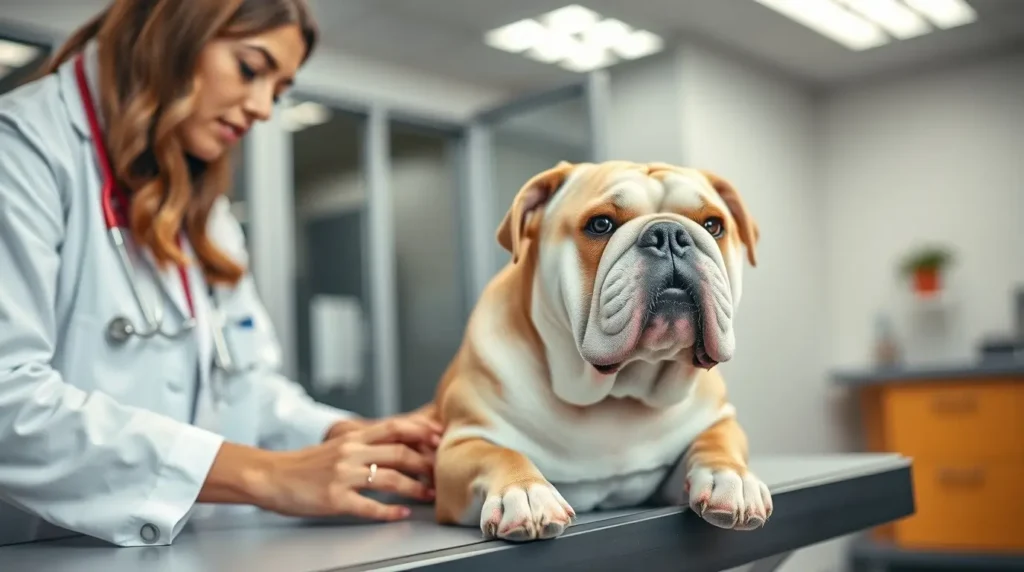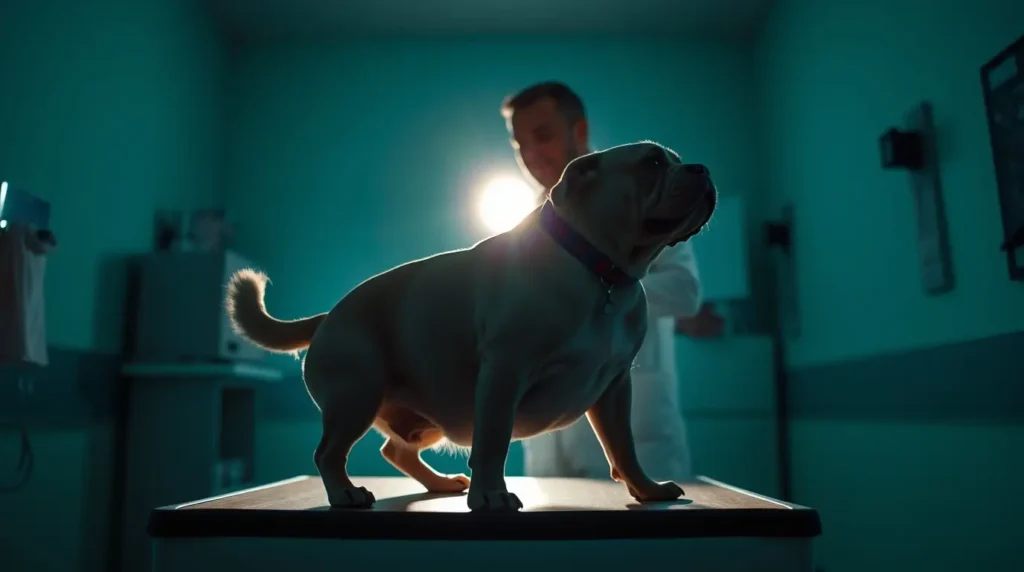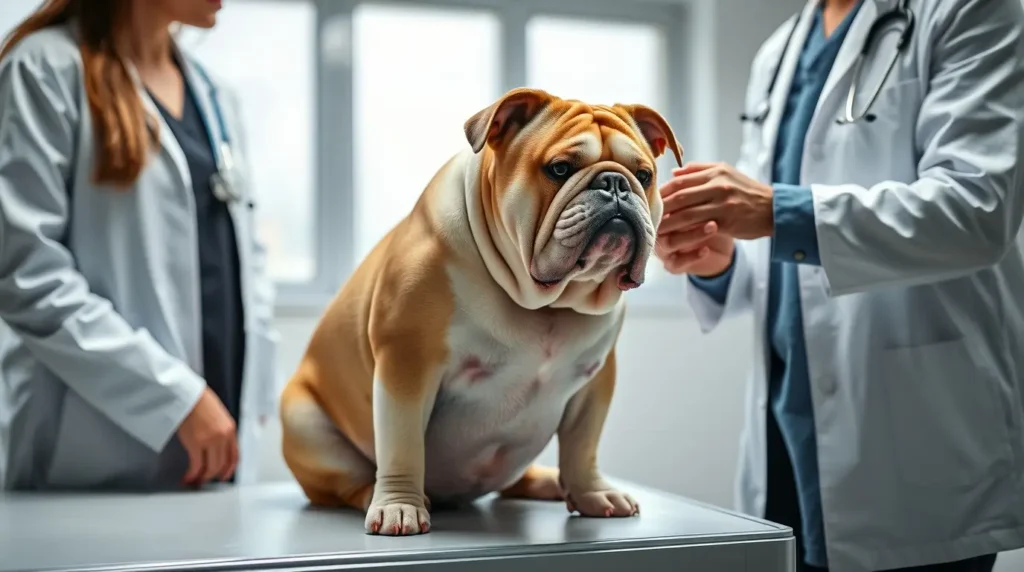At Whizpet, we understand the deep concern pet owners feel when their furry companions face health challenges. That’s why we conducted extensive research to uncover crucial insights about an obese dog with Down syndrome. Our team analyzed veterinary studies, consulted animal health experts, and reviewed real-life cases to provide the most accurate and helpful information for dog owners.
An obese dog with Down syndrome-like symptoms requires special care, as their condition affects both physical and cognitive functions. Many pet owners struggle to understand whether their dog truly has Down syndrome or a different genetic disorder. Our research highlights the key differences, symptoms, and survival strategies for such dogs.
In this article, we will explore five shocking facts about how an obese dog with Down syndrome survives. From managing their weight to improving their quality of life, we’ll provide actionable insights based on expert-backed research to ensure your pet receives the best possible care.

1. Can Dogs Really Have Down Syndrome? The Truth Revealed
Many pet owners search for terms like “obese dog with Down syndrome symptoms” or “golden retriever with Down syndrome,” but the reality is that dogs cannot have Down syndrome like humans. However, they can have genetic mutations or congenital disabilities that lead to physical and cognitive abnormalities similar to Down syndrome.
Unlike humans, dogs have a different chromosomal structure, which makes it impossible for them to develop true Down syndrome. However, certain genetic disorders can result in similar symptoms, including developmental delays, facial abnormalities, and motor dysfunction. An obese dog with Down syndrome-like symptoms may struggle with mobility due to excess weight, making it even more important to manage their health effectively.
Veterinarians often diagnose these dogs with congenital disorders such as pituitary dwarfism, hydrocephalus, or other chromosomal anomalies. If you suspect your dog has a genetic condition, it is essential to seek veterinary guidance to determine the best care plan. Understanding the root cause of your dog’s symptoms will help ensure they receive appropriate treatment and support.
Common Symptoms of an Obese Dog with Down Syndrome
Recognizing the symptoms of an obese dog with Down syndrome-like conditions can help pet owners take the necessary steps for better care. While these dogs may exhibit unique physical and behavioral traits, early detection and intervention are crucial to managing their condition effectively.
Common Signs to Watch For:
- Unusual facial features (broad head, small ears, flattened nose)
- Cognitive impairments or slow learning, leading to difficulty following commands
- Poor muscle tone, resulting in weak coordination and difficulty walking
- Heart defects, breathing issues, or other organ-related complications
- Excessive weight gain due to metabolic imbalances and reduced physical activity
- Delayed social responses or difficulty interacting with other pets or humans
If your dog exhibits these symptoms along with obesity, they may have an underlying health condition requiring medical attention. Seeking veterinary advice and implementing lifestyle changes, such as a controlled diet and regular exercise, can significantly improve their well-being.
2. The Impact of Obesity on Dogs with Genetic Disorders
An obese dog with Down syndrome-like symptoms faces even more challenges than a typical overweight dog. Excess weight puts additional strain on their joints, heart, and overall health, making survival harder. Dogs with genetic disorders often experience lower muscle tone, weaker joints, and slower metabolisms, making weight management more difficult than in healthy dogs.
Why Does an Obese Dog with Down Syndrome Need Special Care?
- Increased risk of diabetes and metabolic disorders due to hormonal imbalances
- Joint pain and mobility issues, which can lead to arthritis and decreased activity
- Higher chances of respiratory distress, particularly in brachycephalic breeds
- Greater strain on the heart, increasing the risk of cardiovascular diseases
- Reduced life expectancy and decreased quality of life without proper intervention
Carrying extra weight exacerbates existing health conditions, making it critical to manage obesity in dogs with genetic disorders. Owners should focus on portion control, a balanced diet, and regular, low-impact exercise to help their dog maintain a healthier weight. Veterinary support and early intervention can prevent complications and ensure a longer, happier life for affected dogs.
3. Effective Treatment and Care for an Obese Dog with Down Syndrome Symptoms
Proper care can significantly improve the quality of life for an obese dog with Down syndrome symptoms. Since these dogs are prone to multiple health challenges, a well-structured care plan is essential to manage their condition and promote overall well-being.
Diet & Nutrition for an Obese Dog with Down Syndrome
- Feed a balanced diet rich in high-quality protein and fiber to support digestion and maintain a healthy metabolism.
- Avoid overfeeding and provide portion-controlled meals to prevent unnecessary weight gain.
- Choose dog food with essential vitamins and minerals that support cognitive function and joint health.
- Consult a veterinarian for specialized weight management plans tailored to your dog’s specific needs.
Exercise & Mobility Support for an Obese Dog with Down Syndrome
- Incorporate gentle activities such as short, frequent walks to promote mobility and cardiovascular health.
- Engage in hydrotherapy sessions, which allow dogs to exercise without putting excessive strain on their joints.
- Provide orthopedic bedding and supportive harnesses to reduce pressure on the joints and enhance comfort.
- Use ramps instead of stairs to prevent injuries and ensure safe movement around the house.
Veterinary Care & Medications
- Schedule regular check-ups to monitor weight, cardiovascular health, and metabolic conditions.
- Medications may be prescribed to manage pain, inflammation, or metabolic disorders that contribute to obesity.
- Physical therapy can help improve muscle tone and mobility, allowing an obese dog with Down syndrome symptoms to move more comfortably.
- Consider alternative therapies such as acupuncture or chiropractic care to provide additional pain relief and enhance overall well-being.
By implementing a comprehensive care plan, pet owners can help their obese dog with Down syndrome live a healthier, more fulfilling life. Regular veterinary visits, proper diet, and structured exercise routines can make a significant difference in improving their quality of life and longevity.
4. Can an Obese Dog with Down Syndrome Symptoms Live a Normal Life?
With proper care, an obese dog with Down syndrome symptoms can lead a happy and fulfilling life. However, their lifespan may be slightly shorter due to underlying conditions. Key factors that contribute to their well-being include:
- Routine vet visits for early detection of complications, ensuring timely interventions.
- Mental stimulation through toys, obedience training, and positive reinforcement to enhance cognitive abilities.
- Consistent exercise and weight management to avoid additional health risks associated with obesity.
- A balanced diet tailored to their specific needs, ensuring they receive proper nutrients.
- A safe and comfortable environment free of obstacles that could cause injury due to mobility challenges.
- Social interaction with family members and other pets to prevent loneliness and depression.
While challenges exist, with dedicated care and attention, an obese dog with Down syndrome symptoms can experience a fulfilling life. The key is to provide a structured routine that supports their physical and emotional well-being.
5. The Role of Love and Patience in Caring for Special Needs Dogs
Caring for an obese dog with Down syndrome symptoms requires extra patience, but it is incredibly rewarding. These dogs thrive on love, routine, and proper care. Providing them with a stable environment, regular vet visits, and a nutritious diet can significantly improve their quality of life.
How Love and Patience Make a Difference:
- Developing a consistent daily schedule reduces anxiety and stress.
- Positive reinforcement training enhances their learning abilities.
- Offering emotional support helps them feel secure and loved.
- Gentle handling and regular physical affection improve their trust in their owner.
- Understanding their unique needs allows you to tailor their care accordingly.
Did You Know? Some owners create custom diets and exercise regimens to help their special needs pets live longer and healthier lives! By showing patience, care, and dedication, you can ensure that your obese dog with Down syndrome symptoms thrives in a loving and supportive home.

FAQs About Obese Dogs with Down Syndrome Symptoms
1. Can an obese dog with Down syndrome be treated?
While Down syndrome doesn’t exist in dogs, genetic disorders can be managed with proper diet, exercise, and veterinary care.
2. How can I help my overweight dog lose weight?
Reduce calorie intake, increase low-impact exercise, and consult a vet for personalized guidance.
3. What breeds are more prone to Down syndrome-like symptoms?
Breeds like golden retrievers and bulldogs sometimes show congenital conditions similar to Down syndrome.
4. How do I know if my dog has a genetic disorder?
Look for unusual physical traits, cognitive delays, and motor issues. A vet can confirm with genetic testing.
5. Is there a special diet for dogs with Down syndrome symptoms?
Yes! A high-protein, low-fat diet with essential vitamins can help manage symptoms.
Final Thoughts: Ensuring a Happy Life for Your Dog
An obese dog with Down syndrome symptoms requires specialized care, but with the right diet, exercise, and veterinary support, they can live a fulfilling life.
Take Action: Help Your Obese Dog with Down Syndrome Today!
If you suspect your dog has a genetic disorder, consult your vet today for a proper diagnosis and treatment plan. Every step you take now can improve their quality of life and ensure they stay happy and healthy!
Related blog: For more detailed information about pet care

